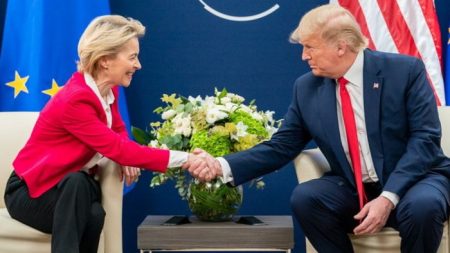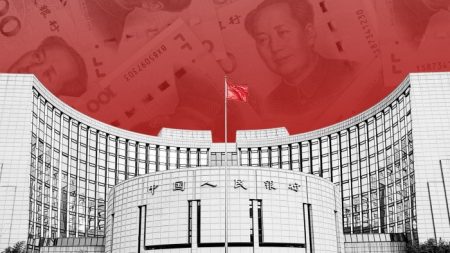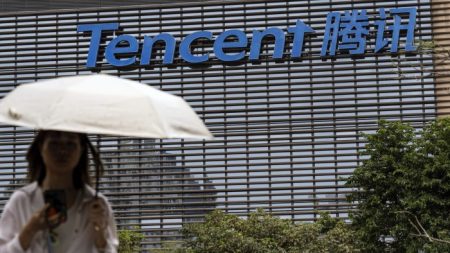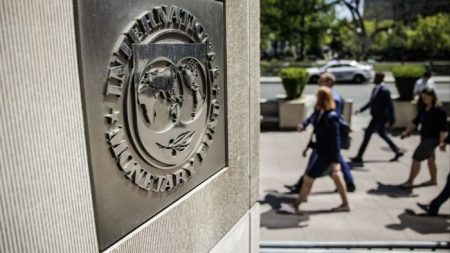Unlock the Editor’s Digest for free
Roula Khalaf, Editor of the FT, selects her favourite stories in this weekly newsletter.
The presidential election in Mexico this Sunday will not grip global attention like the Trump-Biden rematch in the US. But it could prove equally consequential for the nation voting — and for the future of Mexican democracy.
President Andrés Manuel López Obrador, an old-school nationalist leftwinger, can boast impressive reductions in poverty and inequality in his six-year term, thanks to a doubling of the minimum wage and expanded welfare programmes. His common touch and austere personal life have cemented support among poorer Mexicans who despaired of a patrician, often corrupt political elite.
Yet Mexico’s steady growth, political stability and attraction to multinationals relocating production from China have obscured an uglier side to López Obrador’s legacy. This includes the explosive growth of organised crime, record murders, deteriorating government finances, a mismanaged energy sector, a bigger role for the military and a worrying intolerance of dissent.
These present serious challenges for the next president, who for the first time in the country’s machismo-steeped history is almost certain to be a woman.
Claudia Sheinbaum, the most likely winner, has stressed continuity. A López Obrador protégée and former mayor of Mexico City, she would keep on expanding welfare programmes, raise the minimum wage further and maintain the state’s larger role in the economy. Sheinbaum’s training as a climate scientist has led some to predict she would offer an attractive mix of continuity, plus a dash of technocratic modernisation.
Yet Sheinbaum is committed to her mentor’s policy of armed forces control over federal policing and key parts of the economy, such as airports, ports, customs and an airline. She is enthusiastic about his proposal for voters to elect Supreme Court justices, other senior judges and board members of the independent electoral authority directly, saying it would increase democracy.
This alarms independent experts, who believe the proposal would bring key institutions under political control and threaten the future of Mexico’s young democracy, which emerged only in 2000 after 71 years of one-party rule. Critics see in López Obrador’s Morena movement a reincarnation of the long-dominant Institutional Revolutionary Party (PRI), with the same appetite for monopolising power.
Sheinbaum’s main opponent, self-made businesswoman Xóchitl Gálvez, has struggled to make headway with voters on a playing field tilted by López Obrador’s use of incumbency and pliant media to promote the ruling party. A chaotic campaign and Gálvez’s status as the standard-bearer of an unpopular coalition of opposition parties tainted by past failures have not helped. Her relative lack of experience in government is another drawback.
Gálvez has promised a more business-friendly approach, a crackdown on crime and an openness to private investment in the ailing state oil company Pemex. She pledges to bring the National Guard created by López Obrador under civilian control and bolster the independence of key institutions.
Business and investors have largely ignored the election, assuming a continuation of the status quo and preferring to focus on the immediate attractions of high returns from flourishing Mexican markets, flattered by the strong peso.
They may be underestimating the risks to institutions and the rule of law which could materialise after the election if a majority is secured for constitutional change, whether at the polls or in subsequent congressional horse-trading. It is no exaggeration to say that the survival of healthy multi-party democracy in Mexico is on the ballot.
Read the full article here












